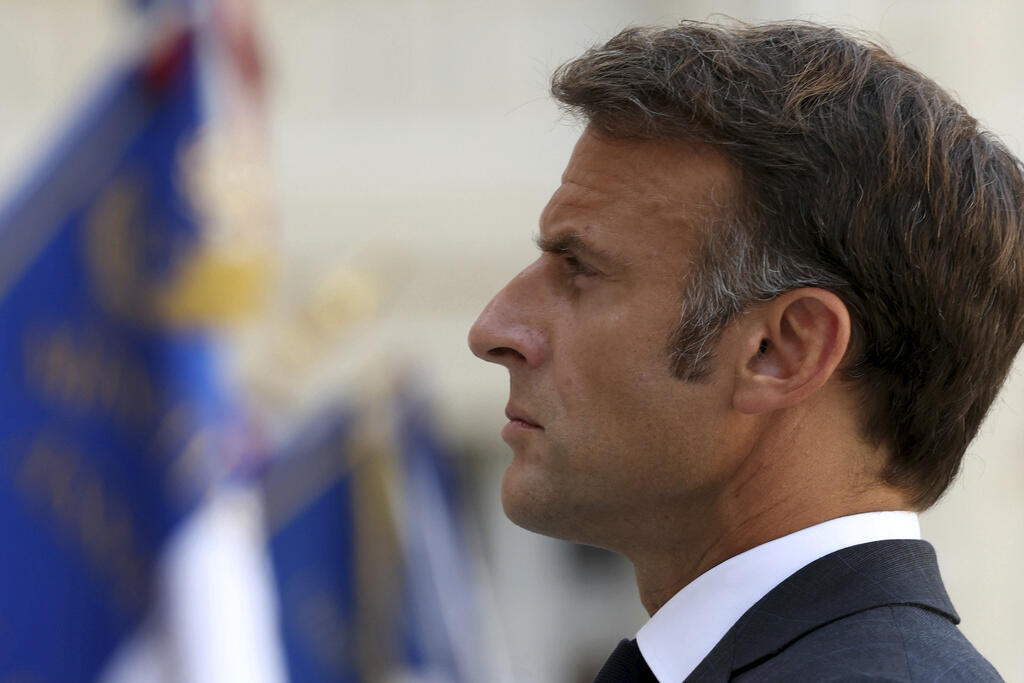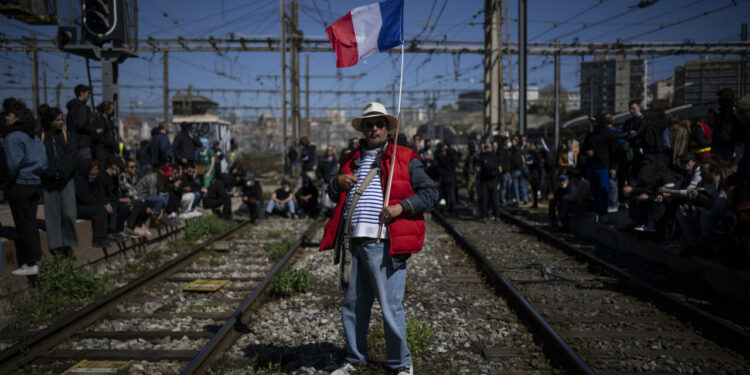Barnier promises to tackle France’s most pressing problems swiftly
Conflict rather than consensus
“It’s difficult to say that France lacks a culture of compromise in absolute terms,” according to Laure Gillot-Assayag, a researcher in political science and philosophy, who nonetheless acknowledges that the French political landscape has often been shaped over the centuries by conflict rather than consensus.
“The French Revolution, but also more recent events like the Gilets Jaunes [Yellow Vest] protests, social movements and strikes in general, mean France is often seen as a country where social and political tensions are resolved through direct action rather than negotiation.”
The framework of the Fifth Republic – designed in 1958 by its first president Charles de Gaulle to strengthen the executive – is not conducive to compromise either.
“De Gaulle wanted to put an end to the regime of parties of the Fourth Republic because he saw that as a factor of instability due to constant shifting alliances,” says Gillot-Assayag.
“So it was aimed at making the National Assembly an extension of the president’s will.”
Listen to a conversation on political compromise on the Spotlight on France podcast:
Spotlight on France, episode 115 © RFI
Imagined instability
Supporters of de Gaulle, past and present, have justified the concentration of presidential powers as a way of avoiding the instability of both the Third Republic (1870-1940) and Fourth Republic (1940-1958), each of which had a series of coalition governments. Some survived less than two months.
And yet politicians of the time defended a tradition of parliamentary compromise.
“We’ve given a very caricatural vision of these regimes because de Gaulle wanted to concentrate power,” says Marie-Anne Cohendet, a professor of constitutional law.
“But some wonderful things happened under the Third and Fourth Republics. And beyond ministerial reshuffles, there was great stability in terms of political staff.”
What’s more, presidents “presided” and prime ministers “governed” in a way that closer resembles the system of governance in several EU states today.
France celebrates Fifth Republic in stormy European waters
Top-down government?
The 7 July parliamentary election delivered three main political forces, with the broad left-wing NFP alliance coming out on top, followed by Macron’s centrist Ensemble coalition and the far-right National Rally (RN) in a close third place. None won a sufficient majority to govern alone.
“There are 11 political groups in the National Assembly, it’s a record,” Gillot-Assayag points out, deeming that “a culture of compromise is more necessary than ever” if the government is to function in such a deeply divided political landscape.
She takes inspiration from the late French philosopher Paul Ricoeur, who conceptualised compromise as a founding principle of democracy.
“Ricoeur offers a strong and original take on compromise,” she explains, in which a difficult balance has to be maintained between what the theorist calls the vertical axis of authority and a horizontal axis of living together.
“When one of the axes takes over the other, we fall into violence and authoritarianism. In simple terms it means that democracy cannot only be about participation, but neither can it be summed up by a vertical decision-making process – authority needs to be recognised, authored by citizens.”

President Emmanuel Macron has been accused of failing to compromise since taking the decision to dissolve France’s parliament and call snap elections in June 2024. © AP – Alain Jocard
It turns out Macron was one of Ricoeur’s former pupils and has often cited the philosopher’s influence on his “en même temps” (“at the same time”) approach to politics.
But by dissolving parliament and calling snap elections without consulting his prime minister or cabinet members, and then flatly refusing to appoint a premier from the left-wing alliance that won those elections – preferring to name a conservative whose party won just 7 percent – Macron appears to have skipped one of his mentor’s lessons.
“President Macron is not seen as a president who easily compromised,” says Gillot-Assayag. “He’s been accused of authoritarianism” – notably from the left, who saw his appointment of Barnier as “a denial of democracy but also a denial of compromise”.
Battle of wills
Macron is not alone in wanting to impose his will.
“What we’re seeing, rather than a lack of culture of compromise, is the real obstacles to make it work,” Gillot-Assayag notes. “It’s a problem of individuals.”
Opposition parties such as the hard-left France Unbowed, led by Jean-Luc Mélenchon, and the far-right National Rally, led by Jordan Bardella, are fundamentally opposed to the government’s agenda, she analyses. “It reflects a broader tendency towards radical dissent, rather than compromise.”
Mélenchon’s France Unbowed – the main component in the left-wing NFP alliance – insisted Macron accept its pick for premier and apply the left-wing manifesto in its entirety.
Bardella, meanwhile, ruled out any form of compromise from the get-go, saying ahead of the elections he would only take up the role of prime minister if RN won an absolute majority.
One of the problems is that French politics now revolves around individual leaders rather than parties.
Macron created his centrist Republic on the Move movement (later renamed Renaissance) in 2016, the same year as Mélenchon founded France Unbowed. Marine Le Pen put her mark on her father’s National Front party in 2018, rebranding it the National Rally.
“We see today that political leaders are polluting the capacity for compromise that existed in the Third and Fourth Republics,” says historian Jean Garrigues. “They all have their eyes fixed on [presidential elections] in 2027.”
Appetite for compromise
Yet while figures like Napoleon Bonaparte and Charles de Gaulle may have “familiarised the French with the idea of authoritarian leaders”, Garrigues told French public radio, “French society is evolving”.
“[People] are rediscovering a taste for deliberation, even the direct democracy of the beginning of the Third Republic.”
Meanwhile, Gillot-Assayag sees ways of integrating Ricoeur’s idea of compromise into policy-making, notably by inviting the public to have a say via citizens’ conventions.
She also advocates training elected officials in the art of compromise. “Parliamentarians are also citizens after all,” she says, “so we need to make sure they understand their duties and rights as democratic actors in the political system.”
Despite the two-month political deadlock and ongoing mudslinging, “many political parties and the general public in France are beginning to realise that compromise is crucial for democracy”, she believes.
“It’s still quite new, but it’s a significant development.”
Source link : http://www.bing.com/news/apiclick.aspx?ref=FexRss&aid=&tid=66f2d626d2fb4f5291ccae960d1298aa&url=https%3A%2F%2Fwww.rfi.fr%2Fen%2Ffrance%2F20240924-where-did-france-s-culture-of-political-compromise-go-and-is-it-coming-back&c=152420072917525300&mkt=de-de
Author :
Publish date : 2024-09-24 08:03:00
Copyright for syndicated content belongs to the linked Source.




